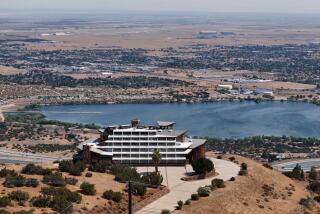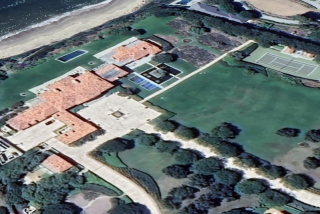Why are some of Southern California’s most expensive properties left completely empty?
- Share via
Over the last century, Southern California has seen its rich, jagged landscape jam-packed with houses wherever they can fit.
Homes hang from the sides of canyons with cantilevered pools suspended midair. Bungalows squeeze onto beaches within inches of their neighbors. ADUs pop up in front yards and backyards, built on-site or dropped in by cranes.
So why are some of the region’s most prime properties — oceanfront lots on Malibu’s best beaches, mountaintop acres overlooking the city — left completely empty?
Spoiler alert: It’s not because their owners are interested in the sanctity of vacant land and preserving California’s hills and beaches by leaving them untouched.
Per usual with the luxury real estate scene, it’s the vagaries of the rich, where the answer can be both vastly complicated or stunningly simple: a mix of greed, overabundance, desire for privacy and sometimes, simply having better things to do than worry about building a colossal house.
There are still plenty of vacant lots left in Southern California. According to Redfin, there are 3,497 residential pieces of land currently on the market in L.A. County, and their values vary wildly based on location.
For example, a half-acre lot is currently up for grabs for $3,000 in Lancaster. Over in Bel-Air, a 264-acre spread is listed for a cool $60 million. But the price discrepancies aren’t always so spread out geographically; in Malibu, one piece of land is asking at $50,000 while another asks $35 million.
In 2017, Milwaukee Brewers owner Mark Attanasio left neighbors scratching their heads when he shelled out $6.6 million for one of the last remaining vacant lots on Malibu’s Broad Beach, an ultra-exclusive stretch of sand where Pierce Brosnan, Frank Sinatra and Jack Lemmon have owned homes. But instead of building on it, he left it empty.
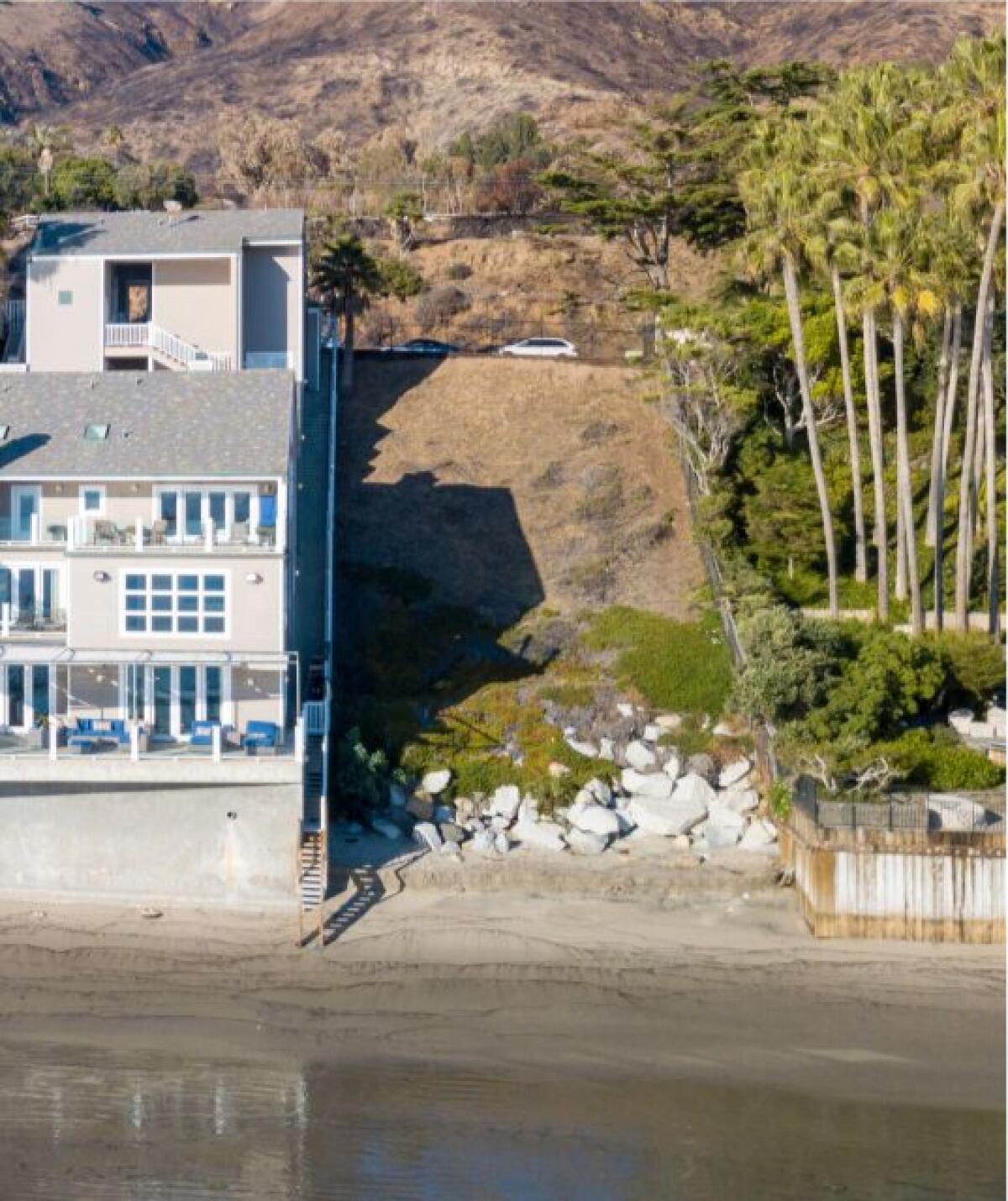
That’s because he already owned the house next to it. Instead of dealing with a potentially annoying neighbor and the noise of constructing a new property right next to his, he decided to just buy the lot to preserve some peace and quiet, according to veteran real estate agent Jack Pritchett, who held the listing on the property a year prior.
“In Southern California, wealth can be measured by privacy, not money,” he said. “This proves it.”
In the 1960s, Pritchett sold a Malibu beach house to actor Steve McQueen, who valued privacy so much that he bought the lots on each side of the property to ensure that no one would build anywhere close to him.
Since Broad Beach is such a coveted enclave, much of its coastline is crowded with houses. Attanasio is leaving his land empty to buy some breathing room, but the property’s previous owner had a different reason: He just didn’t quite get around to it.
It was owned for decades by a doctor who planned to build a house on the property, but the longer he waited, the more building and foundation requirements there were from the California Coastal Commission, according to Pritchett. Ultimately, it just seemed easier to pass the headache onto someone else.
Pritchett laid out a few other examples for why Malibu landowners have kept their prized plots empty.
He knew one family who owned a plot in a gated community in the bluffs above the beach. The husband wanted to build a home there, but the wife didn’t, and so they kept it empty for decades — instead using it as a place to park when they’d go to the ocean.
Pritchett recently sold the empty property on behalf of the family for a little over $1 million. Not bad for a parking spot.
In the 1980s, Pritchett’s father put together a development group that tried building a condo complex near Matador Beach. Given that Malibu lacks a sewer system, neighbors protested, not wanting a condo-sized septic tank stinking up the area, and the group eventually gave up. The land remains empty today.
On the other side of Broad Beach, a one-acre lot traded hands for $11 million in 2020, making it one of Malibu’s priciest land transactions in the last decade. Compass agent Chris Cortazzo said the seller had a vast collection of vacant land; the prized waterfront plot was just one piece of a much larger collection, and the owner simply never felt the need to build there.
It likely won’t stay empty for long; it sold with plans and permits to build two houses on the double-lot parcel.
“Land is king. They’re not building any more of it,” said Scott Tamkin, who currently holds the listing on a staggering 264-acre parcel in Bel-Air that makes up 6% of the neighborhood’s total land area. It’s up for grabs at $60 million.
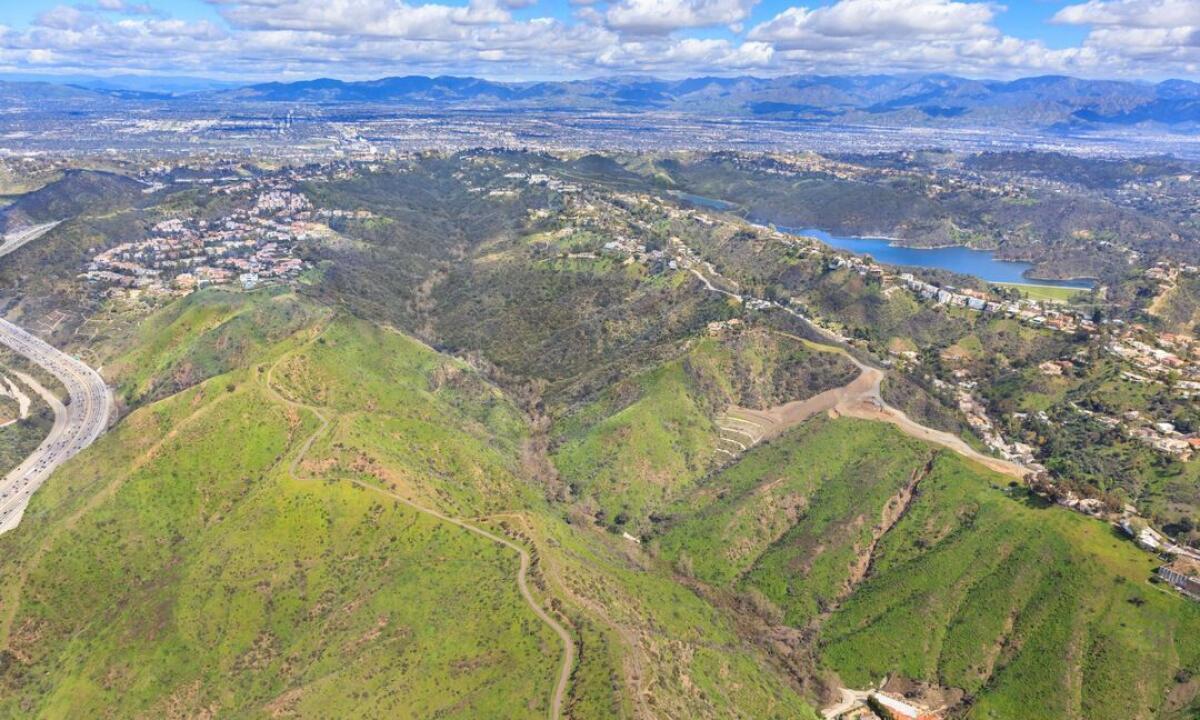
“There are a number of high-net-worth individuals who like to acquire land and sit on it until they decide to do something with it or resell,” he said.
In this case, the owner never decided on anything, but potential buyers have plenty of ideas ranging from a goat farm, retirement community or outdoor campus for a private school. The canyon-spanning property includes 15-20 acres of flat land at the top, and Tamkin said up to 17 homes can be built there.
“I get calls about it every week. Everyone has their own grand idea,” he said.
Every few years, a parcel comes onto the market so large that it’s a shock it’s still empty, especially in an area as populous as L.A. County, which holds roughly 9.8 million residents — roughly 3% of the total U.S. population.
The most extreme example surfaced in 2018, when a 157-acre spread perched at the highest point of Beverly Crest came to market for $1 billion, by far the biggest asking price in the history of California’s residential market.
Many tried, and failed, to build something on the property, which was touted as the finest piece of undeveloped land left in Southern California.
An Iranian princess wanted to build a palace there. Didn’t happen. A talk show host envisioned a marble mega-mansion. Never built. After a troubled saga saw the land auctioned off behind a Pomona courthouse in 2019 to the estate of the late Herbalife founder Mark Hughes, the land remains empty.
Another reason why land is vacant: Who has the time?
“The real prime land tends to be purchased by high-net-worth buyers,” said Hilton & Hyland agent Barry Watts, pointing to tech moguls such as Microsoft co-founder Paul Allen or former Google CEO Eric Schmidt as recent examples.
Allen owned a 120-acre plot on a ridge above Beverly Crest that he never got around to developing, and it recently sold to Schmidt for $65 million.
“They have other things going on in their life,” Watts said.
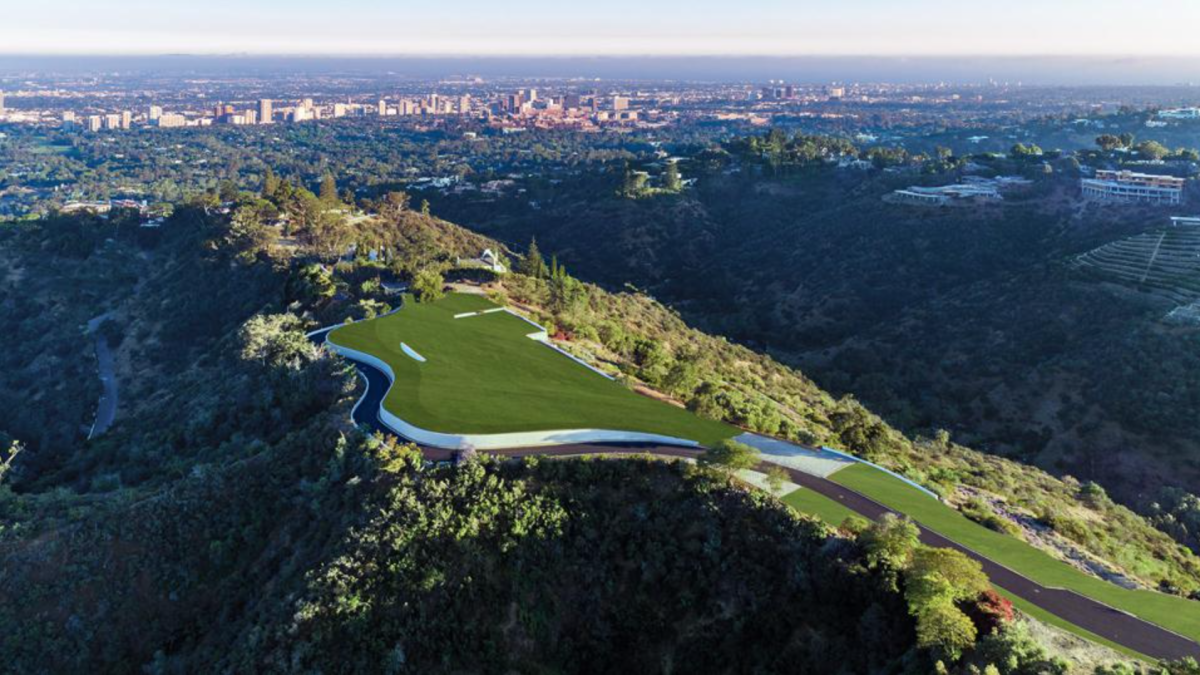
He added that money-rich people are often time-poor, so they don’t have the hours and energy required to work with architects, consultants, contractors and city officials to develop the estate of their dreams. These types of buyers can afford to collect land as an investment, but they also have homes scattered across the country that serve them just fine in the meantime.
Building a world-class estate on world-class land requires significant time — sometimes decades. Watts and fellow agent David Kramer are currently co-listing a collection of land in Bel-Air that has been 20 years in the making.
It was owned for years by Steve Bing, the film producer and philanthropist who committed suicide in 2020. Bing spent nine years living in the Hotel Bel-Air, falling in love with the area enough that he started buying up all the land across the street over the course of a decade.
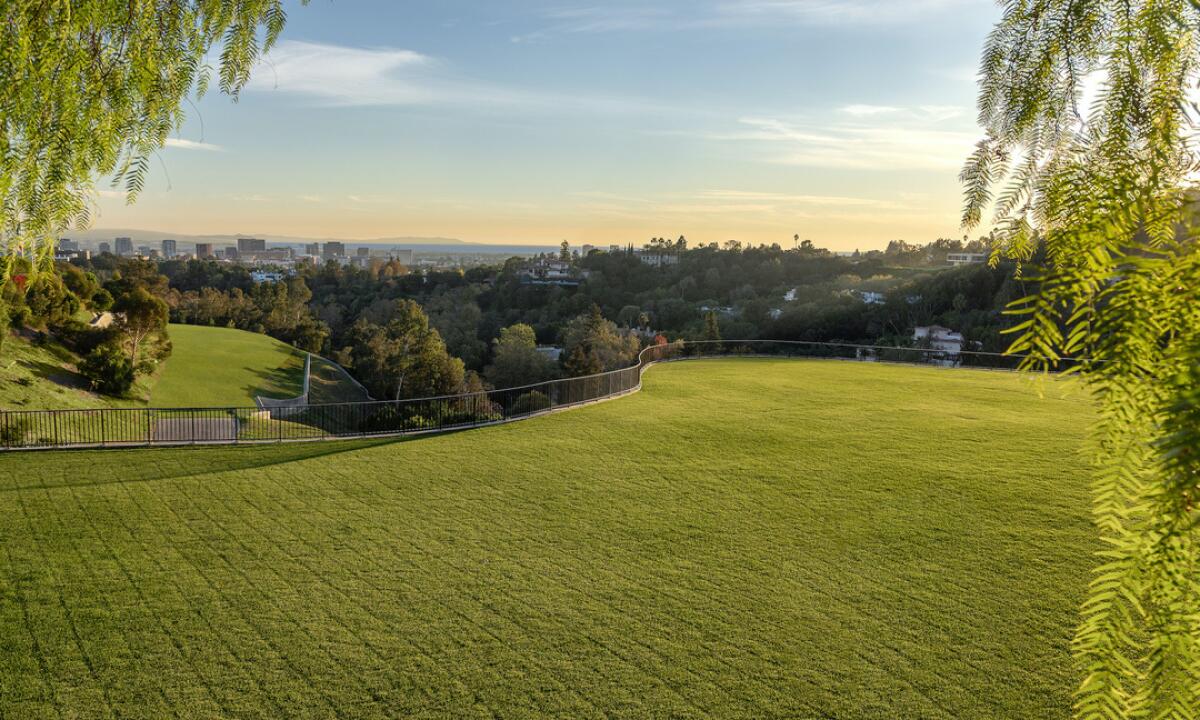
Bing eventually lost control of the land, and it was slowly subdivided into three parts and brought to market. The biggest is listed for $47 million, the middle is listed for $33 million, and the smallest sold for $25 million earlier this year.
“The buyer is planning to build a 25,000-square-foot mansion on the land,” Watts said. “When it’s finished, it’ll be a $100-million property — which it needs to be if you spend that much money on the land.”
More to Read
Sign up for Essential California
The most important California stories and recommendations in your inbox every morning.
You may occasionally receive promotional content from the Los Angeles Times.

